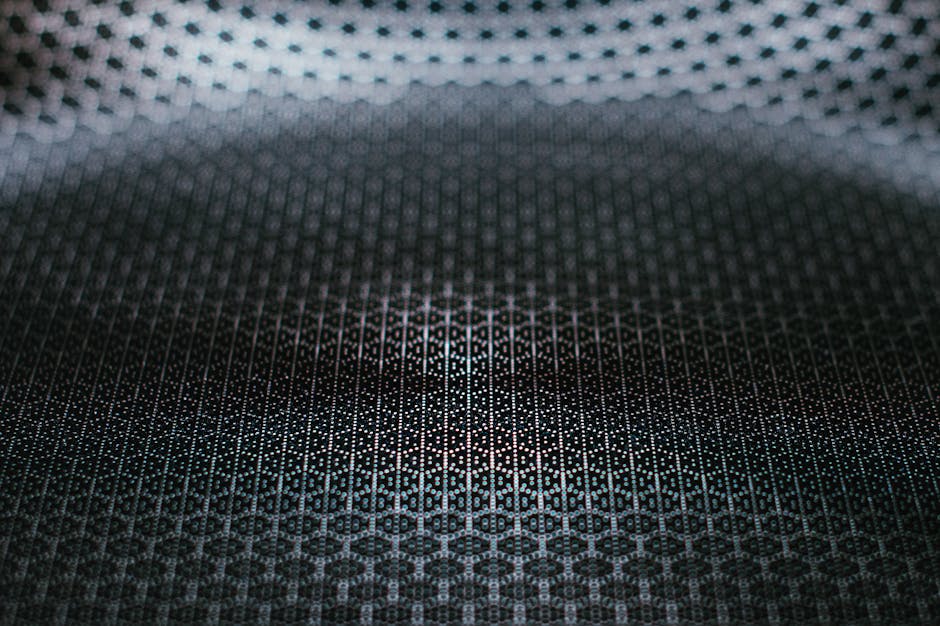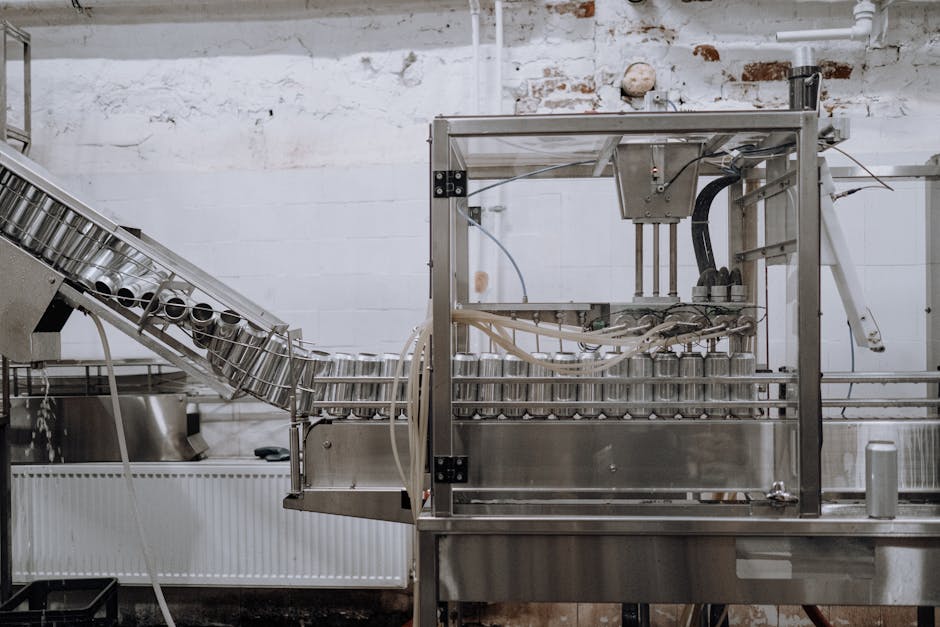The Future of Aluminium Fabrication and Its Impact on UK Industries
The future of aluminium fabrication holds significant implications for UK industries. As the demand for lightweight, durable, and sustainable materials continues to rise, aluminium fabrication is poised to play a pivotal role in shaping the landscape of manufacturing.
Technological advancements in fabrication processes, coupled with the development of innovative aluminium alloys, are expected to revolutionise the industry, offering new possibilities for enhanced product performance and efficiency.
Furthermore, the integration of sustainable practises in aluminium fabrication alines with the growing emphasis on environmental responsibility.
In this context, understanding the evolving trends and potential impact of aluminium fabrication on key sectors such as automotive and aerospace is crucial for navigating future opportunities and challenges in the UK industries.
Key Takeaways
- Demand for lightweight, durable materials is increasing across industries, driving the need for advanced aluminium fabrication processes.
- Technological innovations, such as automation and additive manufacturing, are streamlining production and elevating the quality of aluminium components.
- Sustainable manufacturing practises and the use of eco-friendly technologies are becoming essential to minimise environmental impact and comply with regulations.
- The advancements in aluminium alloys and properties are leading to the development of stronger, lighter-weight components, benefiting industries such as automotive and aerospace.
Growing Demand for Aluminium Fabrication

As the need for lightweight, durable materials continues to increase across various industries, the demand for aluminium fabrication has experienced a significant surge. Market trends indicate that global competition has intensified, driving the need for advanced aluminium fabrication processes to meet the escalating demands of various sectors. This surge in demand has also placed a spotlight on the efficiency of the supply chain and the availability of raw materials.
In response to these market trends, aluminium fabrication industries are continuously adapting to remain competitive in the global market. The competition has pushed manufacturers to streamline their supply chains and optimise the sourcing of raw materials to ensure uninterrupted production and meet the increasing demand for aluminium fabrication.
The growing demand for aluminium fabrication has prompted a strategic shift in the industry, wherein companies are focussing on enhancing their production capabilities to meet the evolving market requirements. This necessitates a closer look at technological innovations in manufacturing processes to address the challenges and opportunities presented by the surge in demand for aluminium fabrication.
Technological Innovations in Manufacturing Processes

Innovations in manufacturing processes for aluminium fabrication have revolutionised the industry’s capabilities to meet increasing market demands and enhance production efficiency. These advancements have significantly transformed the manufacturing landscape, offering several key benefits:
-
Automation: The integration of automation technologies has streamlined the production of aluminium components, leading to higher output rates and reduced operational costs. Automated systems have also improved workplace safety and allowed for the seamless execution of complex fabrication tasks.
-
Precision Machining: The use of advanced precision machining techniques has elevated the quality and accuracy of fabricated aluminium parts. This has enabled manufacturers to adhere to strict tolerances and produce intricate components with unparallelled precision, meeting the stringent requirements of diverse industries.
-
Additive Manufacturing, 3D Printing: The adoption of additive manufacturing, including 3D printing, has unlocked new possibilities in aluminium fabrication. This cutting-edge approach allows for the creation of complex geometries, rapid prototyping, and the production of lightweight yet durable components, offering immense flexibility in design and manufacturing processes.
These technological innovations underscore the industry’s commitment to continual improvement, paving the way for enhanced productivity, resource optimisation, and the delivery of high-quality aluminium products.
Sustainable Practises and Environmental Impact

The adoption of sustainable practises and the consideration of environmental impact in aluminium fabrication processes have become crucial priorities for UK industries, alining with the technological innovations previously highlighted.
Sustainable manufacturing in the aluminium fabrication industry involves a holistic approach that aims to minimise adverse environmental effects, conserve resources, and prioritise social responsibility. This encompasses the implementation of energy-efficient technologies, reducing waste generation, and emphasising the use of recycled materials.
Recycling initiatives play a pivotal role in sustainable aluminium fabrication, as they contribute to the conservation of raw materials, reduction of energy consumption, and minimisation of landfill waste. UK industries are increasingly investing in advanced recycling technologies to extract and reuse aluminium from various sources, including end-of-life products and manufacturing scrap.
These efforts not only aline with environmental sustainability goals but also provide economic advantages by reducing production costs and enhancing resource efficiency.
As the industry continues to evolve, sustainable practises and environmental consciousness will remain fundamental in shaping the future of aluminium fabrication in the UK.
Advancements in Aluminium Alloys and Properties

Advancements in aluminium alloys and properties play a pivotal role in driving the evolution of sustainable manufacturing practises within the UK aluminium fabrication industry. These advancements are crucial for enhancing material properties, optimising manufacturing processes, and ultimately, shaping the future of the industry.
-
Enhanced Material Properties: The development of new aluminium alloys with improved strength, corrosion resistance, and formability contributes to the production of high-performance components for various applications, promoting durability and reliability.
-
Optimised Manufacturing Processes: Advanced aluminium alloys enable the implementation of more efficient manufacturing processes, such as precision casting and extrusion, leading to reduced material waste and energy consumption while maintaining product quality.
-
Sustainability and Environmental Impact: The continuous improvement of aluminium alloys alines with the industry’s commitment to sustainability, as it allows for the creation of lighter-weight components, leading to energy savings during operation and reduced environmental impact.
These advancements not only elevate the performance of aluminium materials but also drive the industry towards more sustainable and environmentally friendly practises, ensuring a positive impact on both manufacturing processes and end products.
Impact on Automotive and Aerospace Industries

Aluminium fabrication’s impact on the automotive and aerospace industries is substantial, influencing the design and performance of critical components. In the automotive sector, the demand for lightweight materials to improve fuel efficiency and reduce emissions has led to extensive use of aluminium in car bodies, engines, and other parts. This trend, known as automotive lightweighting, has significantly increased the need for advanced aluminium fabrication techniques to meet the industry’s stringent requirements for strength, durability, and precision.
In the aerospace industry, aluminium fabrication plays a crucial role in the production of components for aircraft and spacecraft. The material’s high strength-to-weight ratio, corrosion resistance, and thermal conductivity make it particularly well-suited for a wide range of aerospace components, including fuselage panels, wing structures, and interior fittings.
| Automotive Lightweighting | Aerospace Components |
|---|---|
| Aluminium car bodies | Fuselage panels |
| Aluminium engines | Wing structures |
| Lightweight parts | Interior fittings |
| Precision fabrication | High-strength parts |
The table above illustrates some specific applications of aluminium fabrication in both industries, highlighting the diverse and essential roles that aluminium plays in shaping the future of automotive and aerospace technologies.
Future Challenges and Opportunities in UK Industries

To address the future challenges and opportunities in UK industries related to aluminium fabrication, a comprehensive analysis of market trends and technological advancements is imperative.
The landscape of aluminium fabrication in the UK presents both challenges and opportunities for industries.
-
Challenges:
-
Global Competition: The UK aluminium fabrication industry faces stiff competition from global markets, requiring continuous innovation and cost-effective production methods to remain competitive.
-
Environmental Regulations: Adhering to stringent environmental regulations poses a challenge, necessitating sustainable manufacturing practises and investments in eco-friendly technologies.
-
Skills Shortage: The industry is grappling with a shortage of skilled workers, prompting the need for robust training programmes and initiatives to attract talent.
-
Opportunities:
-
Technological Advancements: Embracing advanced manufacturing technologies such as automation and robotics can enhance productivity and efficiency.
-
Supply Chain Integration: Collaborating with suppliers and fostering strong supply chain relationships can optimise processes and reduce production costs.
-
Diversification: Exploring new markets and applications for aluminium fabrication, such as renewable energy and construction, presents opportunities for expansion and growth.
Navigating these challenges while leveraging the available opportunities will be crucial for the future success of UK industries involved in aluminium fabrication.
Frequently Asked Questions
How Are UK Industries Preparing for Potential Disruptions in the Global Aluminium Supply Chain?
UK industries are proactively addressing potential disruptions in the global aluminium supply chain. Brexit implications, automation integration, and robotics use are being explored. Efforts to minimise energy consumption and carbon emissions, alongside addressing the skills gap in the aluminium fabrication workforce, are underway.
What Are the Potential Implications of Brexit on the Uk’s Aluminium Fabrication Industry?
The potential implications of Brexit on the UK’s aluminium fabrication industry include supply chain disruptions due to changes in trade agreements, leading to increased production costs and uncertainty for businesses. This could impact competitiveness and market stability.
How Are UK Manufacturers Incorporating Automation and Robotics Into Their Aluminium Fabrication Processes?
UK manufacturers are increasingly embracing automation integration and leveraging robotic advancements in their aluminium fabrication processes. This strategic shift not only enhances efficiency and precision but also enables cost savings and improved production scalability.
What Are the Potential Long-Term Effects of Aluminium Fabrication on the Uk’s Energy Consumption and Carbon Emissions?
The potential long-term effects of aluminium fabrication on the UK’s energy consumption and carbon emissions are significant. Improvements in energy efficiency and reduced environmental impact are critical factors that the industry must address to ensure sustainability.
How Are UK Industries Addressing the Potential Skills Gap in the Aluminium Fabrication Workforce?
UK industries are addressing the skills gap in aluminium fabrication through robust training programmes and strategic recruitment strategies. Workforce development initiatives are equipping workers with the necessary skills to meet the demands of the evolving industry.
Conclusion
In conclusion, the future of aluminium fabrication holds great potential for the UK industries. With growing demand, technological innovations, sustainable practises, and advancements in alloys, it is poised to make a significant impact on automotive and aerospace sectors.
However, there are still challenges to overcome, such as cost-effectiveness and energy efficiency. By addressing these challenges, the UK industries can seise the opportunities presented by aluminium fabrication and continue to thrive in the global market.
Contact us to discuss our services now!
